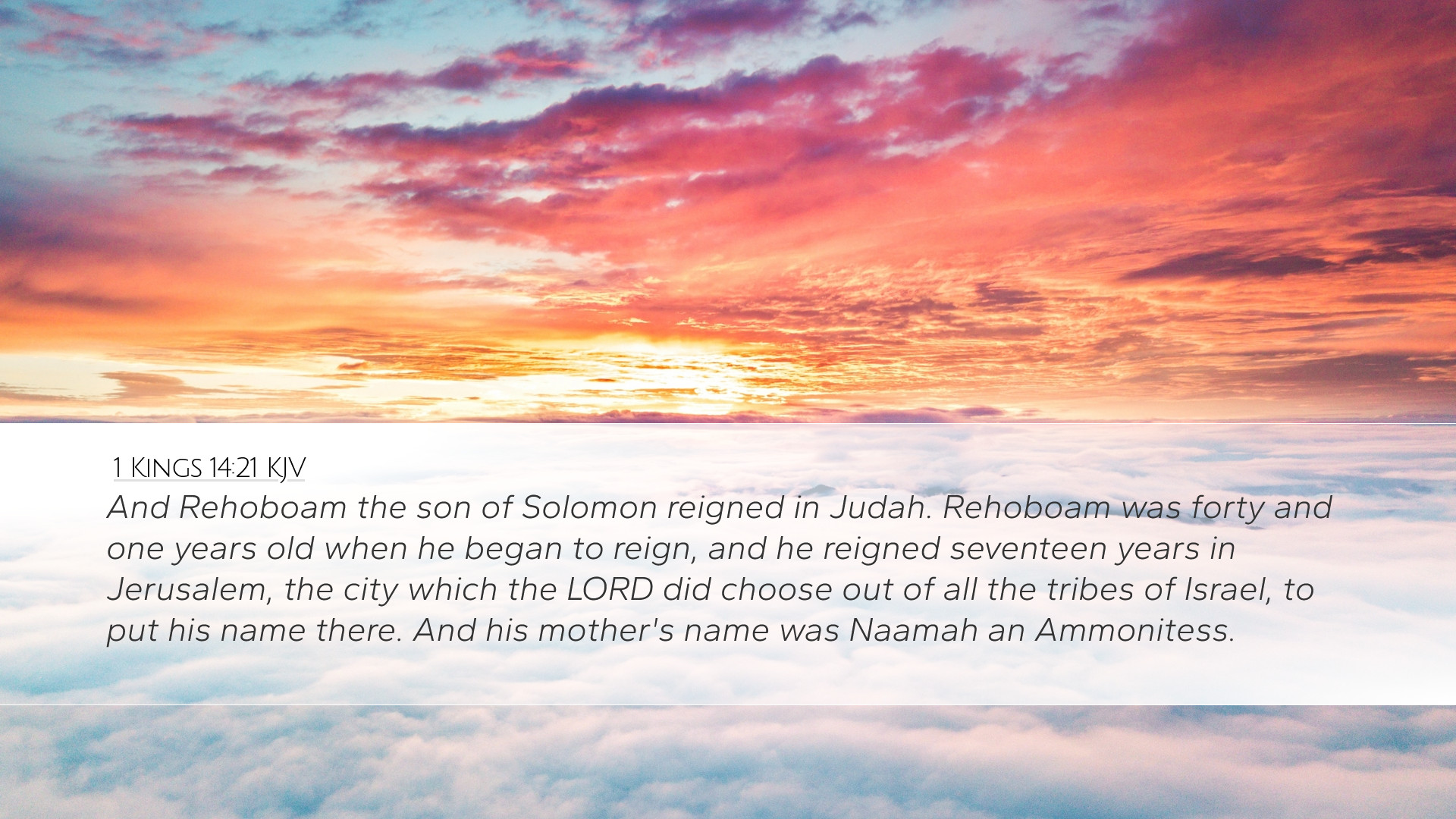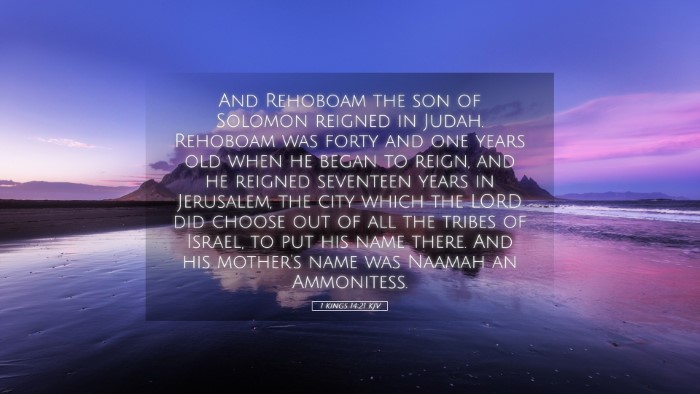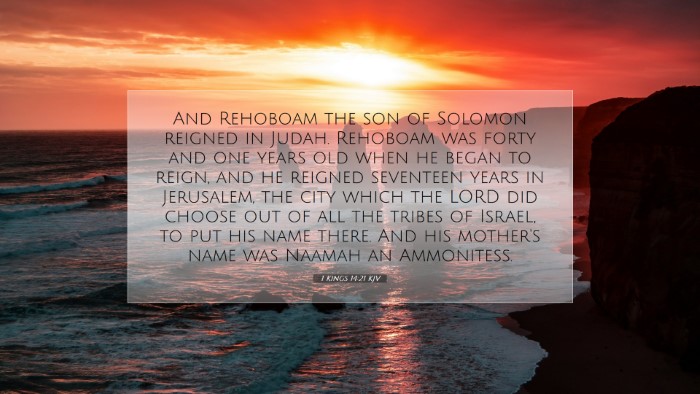Commentary on 1 Kings 14:21
1 Kings 14:21 states: "And Rehoboam the son of Solomon reigned in Judah. Rehoboam was forty and one years old when he began to reign, and he reigned seventeen years in Jerusalem, the city which the LORD did choose out of all the tribes of Israel, to put his name there: and his mother's name was Naamah, an Ammonitess."
Introduction
The verse presents significant details surrounding the reign of Rehoboam, the son of Solomon, providing a snapshot of his lineage, age at ascension, duration of reign, and origin. This commentary draws upon public domain sources to elucidate the importance of this passage for understanding the history of the monarchy in Israel, the theological implications of Rehoboam's reign, and the character of leadership in ancient Israel.
Contextual Background
Rehoboam’s ascent to power marks a pivotal moment in the history of Israel, coinciding with the division of the united kingdom under his grandfather, David, and father, Solomon. This chapter depicts significant events that lead to the split between the northern and southern kingdoms.
Historical Significance
- Rehoboam's Lineage: His heritage is crucial; being the son of Solomon, a ruler known for wisdom, grandeur, and divine favor, sets high expectations for his kingship.
- Age and Rule: Rehoboam began his reign at 41 years old, suggesting he was not a novice in leadership despite his relative inexperience as a ruler compared to Solomon.
Theological Insights
Rehoboam's reign sheds light on several theological themes, particularly concerning divine sovereignty, the consequences of leadership choices, and the larger narrative of Israel’s unfaithfulness.
Divine Sovereignty
According to Matthew Henry, the mention of Judah as the city chosen by the Lord emphasizes God's sovereignty in the selection of Jerusalem as His dwelling place among His people. This designation signifies the religious and communal importance of the city, which serves as a backdrop for understanding Rehoboam's role.
Consequences of Leadership
Albert Barnes reflects on Rehoboam’s early actions that would lead Judah into idol worship, sowing seeds of division and conflict. His rule exemplifies how leadership choices can result in collective consequences for the people, a theme that resonates in both biblical and contemporary settings.
Idolatry and Influence
The reference to Naamah, his mother, noted as an Ammonitess, indicates the potential for foreign influence drawing the hearts of the people away from fidelity to Yahweh. Adam Clarke suggests that the mixed heritage may have fostered idolatry by introducing practices alien to Israelite worship, resulting in syncretism and unfaithfulness to Yahweh.
Leadership Qualities of Rehoboam
Rehoboam's leadership is often characterized by his lack of wisdom during the critical decision-making moments that define his reign. His early years were marked by a failure to seek counsel from the wise men who advised his father, opting instead for the advice of his peers.
Wisdom versus Folly
In contrast to his father Solomon’s reputation for wisdom, Rehoboam’s decisions led to national strife. As per Matthew Henry, this highlights the critical importance of wisdom in leadership. The choice to dismiss experienced counsel for the voice of youthful advisors was a misstep that many leaders today can learn from.
Lessons for Modern Readers
This verse serves as a reflective piece for pastors, students, theologians, and Bible scholars, providing timeless lessons on leadership, divine guidance, and the repercussions of choices made by those in power.
- Seek Wisdom: Modern leaders are encouraged to seek counsel that is grounded in godly wisdom rather than popular opinion.
- Prioritize Faithfulness: The influence of external practices should be measured against the fidelity to God’s teachings.
- Acknowledge Consequences: Understanding that leadership decisions can have profound impacts on their communities is vital.
Conclusion
1 Kings 14:21 serves as a poignant reminder of the complexities of leadership within a biblical context. Rehoboam’s reign illustrates the interplay between divine sovereignty, human choices, and the perpetual challenge of remaining faithful to God amidst the influences of the world. Scholars and theologians can draw rich insights from this passage, making it a reflective study on the nature of kingship, guidance, and the overarching narrative of redemption woven through Scripture.


